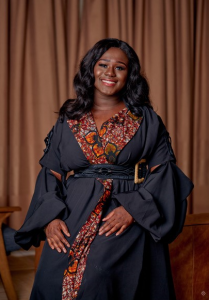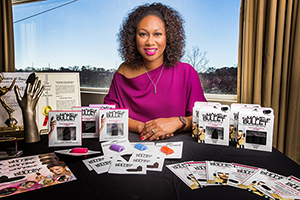According to the World Health Organisation (WHO), depression is the fourth leading cause of illness in adolescents aged 15–19 years and the fifteenth for those between the ages of 10–14; while anxiety is the ninth leading cause in adolescents aged 15–19 and sixth for those between the ages of 10–14 years. A major cause cited for teenage depression and anxiety of teenagers is the desire for greater autonomy. As teenagers, we desire control over ourselves and our choices. One way we can do this is by deciding when or if we are ready to start experimenting with makeup and our overall appearance.
My journey with makeup started early, around the age of eleven. My best friend and I would experiment with makeup on my mum every Friday night and this routine gave us something positive to do and allowed us to bond and catch up with each other at the end of each week. After my best friend moved abroad, the tradition broke. Years later, my personal passion for makeup kindled when I was going through a rough patch after my sixteenth birthday. I had grown more and more frustrated with my eczema and I felt the need to have something about my skin that I could control.
At that time, I was also having a rough period with some of my IGCSE subjects. Due to this, I was losing my motivation to do anything as no matter how hard I tried, nothing would improve. After weeks of religiously watching dark skin makeup YouTubers like Nyma Tang and Jackie Aina, I finally built enough confidence to start doing my own makeup and once I did, it gave me a level of control on my appearance that I had never had before.
I would practice every Friday night and after a hard week, it made me feel better about myself and what was going on in my life. Up until this point, I was still using my mum’s products but then the time came for me to get my own supplies. It was something I needed to do on my own. I needed to go to the counter and talk to the makeup artists and pick my own shades because I craved the feeling of independence. My mum supported that by allowing me to have my privacy. Putting on the makeup that I bought and trying different products and techniques made me more confident.
Why I believe teenagers who would like to experiment with makeup should be allowed to
- Sense of independence
Makeup can give teenagers a sense of independence and empowerment that we rarely ever feel. This is because it allows us to better control our appearance, and this helps to alleviate the sense of powerlessness that we often feel. For example, the presence of the Coronavirus has caused a fundamental change in lifestyle that is beyond control and affects both our education and social life. However, the way that we style or colour our hair, wear our makeup, or dress is something that we can control. The desire to create our own path is due to the fact that we are at the stage when we realise that life is pulling us along and there is nothing that we can do to determine what the future holds.
The experience of buying my own makeup, choosing how and when to apply it on my own created a sense of excitement for me. It also allowed me to feel the empowerment of being my own person and not an extension of my parents for the first time.
- Increased Motivation
Depression is indicated by a severe lack of motivation. It is understandable that many teenagers experience this as we are at the most difficult point in our lives so far – with the pressure that parents, school examinations like WASSCEs, Cambridge Checkpoint, IGCSEs, A-Levels and SATs and society are putting on us. For teenagers, seeing ourselves improve in skill when we do their makeup can give us a sense of motivation; which we do not receive from other aspects of our lives. This can result in better schoolwork and communication skills.
My weekly use of makeup changed my approach to work as I was calmer and had a new ability to work patiently and consistently. This is because practising my makeup skills had showed me that if I set my mind to something and worked towards it, I could do it. Thankfully my grades went up. My passion also resulted in the formation of a cosmetics business called SandS Beauty with my best friend and when we feel like giving up or feel ourselves sinking into the familiar loss of motivation, we video call each other and do our makeup step-by-step together and it boosts our spirits. This activity gives us something to look forward to during the week and keeps us motivated during our classes.
- Freedom of expression
A parent of a teenager who is experimenting with ways of self-expression should allow them the freedom to do so, as long as they are not causing harm to themselves or anyone else. When you restrict an adolescent’s self-expression, you make yourself the authority on how they choose to present themselves to the world and how they see themselves, consequently stifling their free will.
People often relate loving makeup to being insecure about one’s appearance which isn’t necessarily true. My love for makeup didn’t start because I wasn’t comfortable with how my face looked; it started because I needed to have something that was just for me to decide.
Oftentimes, people are confused about why I do my makeup even and especially when I don’t leave the house and this is because I don’t wear makeup for anyone else; I wear it for me.
For some teenagers, being able to experiment and express ourselves via the art of applying makeup and “enhancing our appearance” as we wish can make us feel better about the way we look to others and most importantly, the way we look to ourselves. This is because appearance is a significant source of insecurity in adolescents. Unfortunately, even for those who love makeup, it cannot cure depression and anxiety even though it may alleviate the symptoms and boost your confidence.
If your child shows strong symptoms of anxiety and depression over an extended period of time, please do not shame them but instead seek professional assistance.

Written by: Akua Serwaa Owusu-Ansah
Featured in Glitz Africa Magazine issue 26









